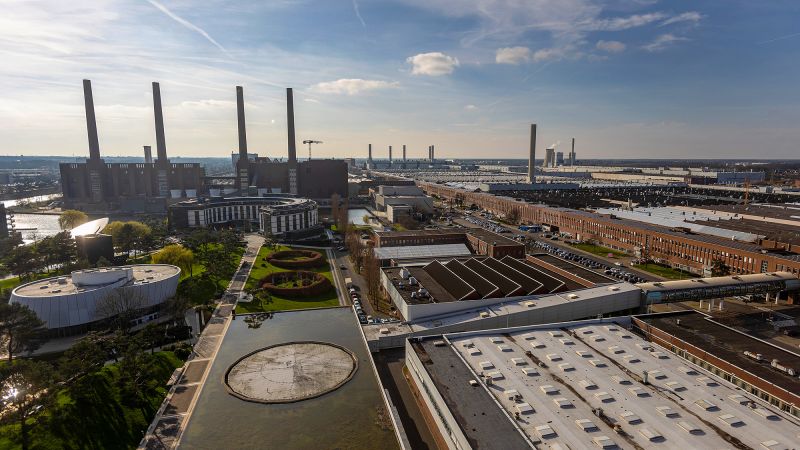Volkswagen is considering closing factories in Germany for the first time in its history as part of cost-cutting measures due to increased competition from Chinese electric vehicle makers. The German automaker is also looking to terminate an employment protection agreement with labor unions to “future-proof” the company. CEO Oliver Blume stated that the European automotive industry is facing a challenging situation, with Germany falling behind in competitiveness as new competitors enter the market.
The company initiated a €10 billion cost-cutting effort last year and is experiencing a decline in market share in China, its largest market. Deliveries in China fell by 7% in the first half of the year, leading to a drop in group operating profit. This lackluster performance in China is attributed to competition from local electric vehicle brands such as BYD, which are posing a threat to Volkswagen’s business in Europe. CEO Oliver Blume highlighted the importance of cost-cutting as the main area of focus moving forward.
Volkswagen’s cost-cutting plans are expected to face resistance from labor representatives, who hold almost half the seats on the company’s supervisory board. Germany’s powerful union, IG Metall, criticized the company’s management for its shortcomings and vowed to protect jobs. The union is concerned about the potential impact of plant closures on employment and regional economies. The disagreement between the company and labor unions indicates a challenging negotiation process ahead.
The decision to close factories in Germany marks a significant shift for Volkswagen, which has historically maintained a strong presence in its home country. The company’s struggles in China, coupled with increasing competition from local electric vehicle manufacturers, have prompted the need for drastic cost-cutting measures. CEO Oliver Blume emphasized the importance of reducing expenses in areas such as factories, supply chain, and labor to remain competitive in the evolving automotive industry landscape.
The shift towards electric vehicles and the rise of new competitors in the market have put pressure on traditional automakers like Volkswagen to adapt and innovate. The company’s decision to consider plant closures and cost-cutting measures reflects the broader challenges facing the automotive industry. Volkswagen’s ability to navigate these challenges and implement effective cost-saving strategies will be critical in maintaining its position as a leading global car manufacturer.
Despite facing resistance from labor unions and criticism of its management decisions, Volkswagen is determined to take necessary steps to address its financial challenges. The company’s focus on cost reduction and future-proofing its operations underscores its commitment to remaining competitive in the changing automotive landscape. As Volkswagen navigates through these challenges, the outcome of its cost-cutting efforts and potential plant closures will have significant implications for its employees, stakeholders, and the broader automotive industry.













